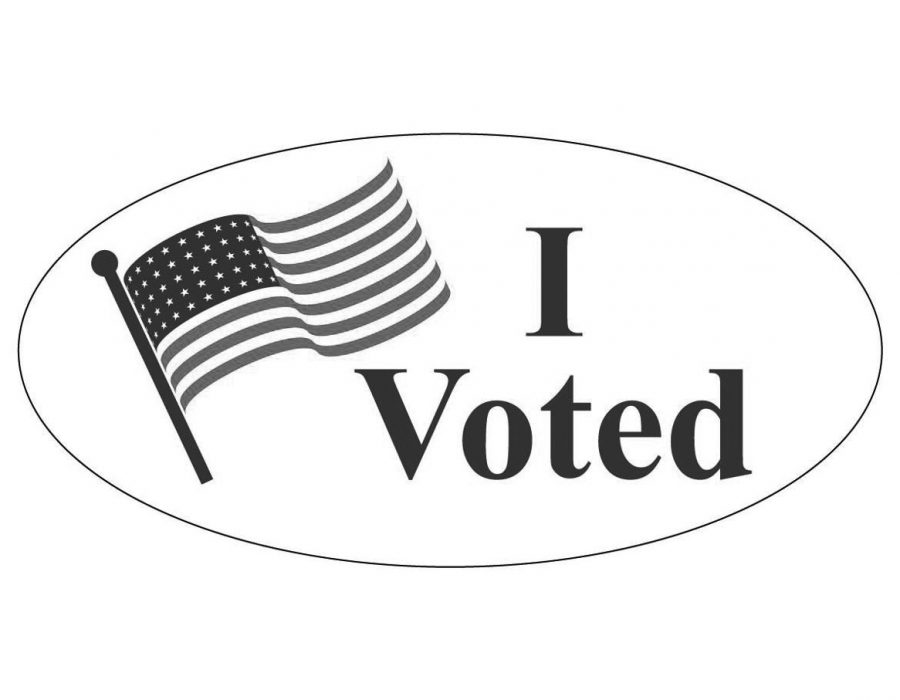LTE: midterm elections matter
Aug 27, 2018
Editors Note: the following letter to the editor was submitted by Steve Corbin, professor emeritus of marketing at UNI.
In November of 2014, the vast majority of citizens saw no need to vote because Barack Obama was reelected president in 2012, the Republicans said “nah” to everything Obama proposed and our 535 House and Senate elected legislators accomplished little-to-nothing.
The pathetic and apathetic 36 percent voter turnout during the 2014 midterm election came back to bite Democrats especially hard.
As a result of lackluster Democrat voting behavior, Republicans picked up nine Senate seats and took control of the chamber for the first time since 2006. Did it matter?
Supreme Court Justice Antonin Scalia died 466 days later and created a vacancy that was filled by the right-of-center Neil Gorsuch–not left-of-center Merrick Garland.
• Will Democrats remember the midterm 2014 miscue and have high voter turnout on Tuesday, November 6 or will Republicans refute “The Blue Wave” and hold onto their majority?
If the progressives would have paid closer attention to the 2014 midterm election, recent panic over Donald Trump’s choice to replace Supreme Court Justice Anthony Kennedy would be a moot point.
With Republicans controlling the Senate, they will confirm Trump’s Supreme Court appointment and it’s a fait accompli; the Supreme Court will be conservative for the foreseeable future.
Voting is important. You never know what’s going to happen to the Supreme Court, let alone the House and Senate.
The lure of an open Supreme Court seat is why many far-right wing protectionist-authoritarian-nationalists voted for Donald Trump in 2016.
Trump fulfilled his campaign promise by replacing Scalia with Gorsuch.
Anthony Kennedy’s Supreme Court retirement means Republicans will be able to solidify their 5-4 majority with a more consistent conservative ruling bench.
Less we forget, Ruth Bader Ginsburg is 85 and Stephen Breyer will be 80 on Aug. 15. With a couple of heartbeat failures in the next two and one-half years, the Supreme Court could change from a 5-4 conservative favor to 7-2.
• For Republicans and Democrats alike, the upcoming midterm election may very well be a referendum on Supreme Court judicial issues that are important to all citizens.
Issues at stake: 1) overturn 1973’s Roe v. Wade and give states the ability to ban most or all abortions regardless of circumstances, 2) reverse rulings on LGBTQ marriage, employment, housing, military and health service rights, 3) strengthen or weaken gun rights and background checks, 4) doctrinal support of capital punishment and death penalty, 5) favor religious challenges to anti-discrimination law, 6) abandon current affirmative action policy for college admissions and public employment, 7) weaken public-sector union rights, 8) reinterpret the 1965 Voting Rights Acts, voter ID rules and voting policies, 9) permit politically partisan favored gerrymandering voting districts, 10) deny due process to illegal immigrants, 3.6 million DACA population, asylees and refugees, 11) authorize restriction of U.S. diversity-visa, family-based and employment-based immigrants, 12) authorize restriction of high-skilled foreign workers H-1B visas, 13) uphold Citizens United campaign finance ruling, 14) reinterpret Affordable Care Act provisions, 15) permit mass incarceration before trial policy, 16) expand religious liberty interpretation, 17) overturn the federal Defense of Marriage Act on equal protection grounds, 18) reinterpret the 1964 and 1968 Civil Rights Acts, 19) expand international travel bans of Muslims and 20) repeal Native American treaty rights and sovereignty, . . ., to name a few.
Logically, Supreme Court rulings are hard to anticipate. Suffice it is to say all citizens, regardless of their political preference, should save the date: Tuesday, Nov. 6, 2018. Midterm elections matter.

















